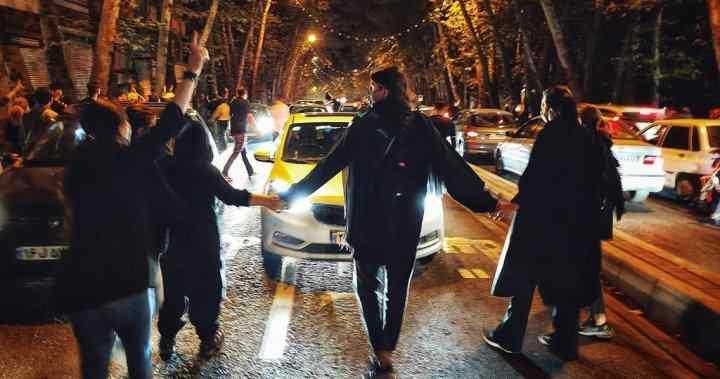
Despite death sentences and arrests, the ‘Jin, Jiyan, Azadi’ (Woman, Life, Freedom) uprising continues in Iran and East Kurdistan.
January 9th, protestors gathered in front of the Rajai Prison in Karaj after reports that two protestors, Mohammed Biruxni and Mohammed Qubadlu, would be executed.
Lawyers of the two prisoners revealed that they appealed to the Supreme Judicial Court against the decision, and the executions should be suspended until the appeal process is completed.
On the same day, three more demonstrators were sentenced to death; one in Esfehan and 2 others in Baluchistan.
Four people have been executed in Iran so far for partaking in the demonstrations against the regime. According to Iran Human Rights Organization, 109 people who participated in the protests have been sentenced to death and they could be executed at any time.
15 women protestors, who had previously launched a hunger strike to protest maltreatment in the Kachoyi Prison in Karaj city, ended the hunger strike because their health conditions deteriorated, and they were prevented from meeting with their families.
Citizens blocked roads and chanted anti-regime slogans after the regime forces did not allow people to hold a religious ceremony for Muhammed Mahdi Keremi and Muhammed Hyseni in the Estihar Cemetery in Karaj three days after they were killed by the regime forces.
A commemoration was held for Awat Qadirpur in the Melaler village of Bokan city in East Kurdistan 40 days after he was killed by the regime forces. The people who attended the ceremony chanted anti-regime slogans.
In the city of Sine, numerous women organized an anti-regime protest on Mount Awyar.
10 protestors who are jailed in the Ilam Prison have launched a strike to protest the negligence of their cases by judicial authorities and the uncertainty of their fate.
As protests continue in the city of Jawanroud, regime forces have increased military control and house raids in the city. Numerous young people were detained in the city.